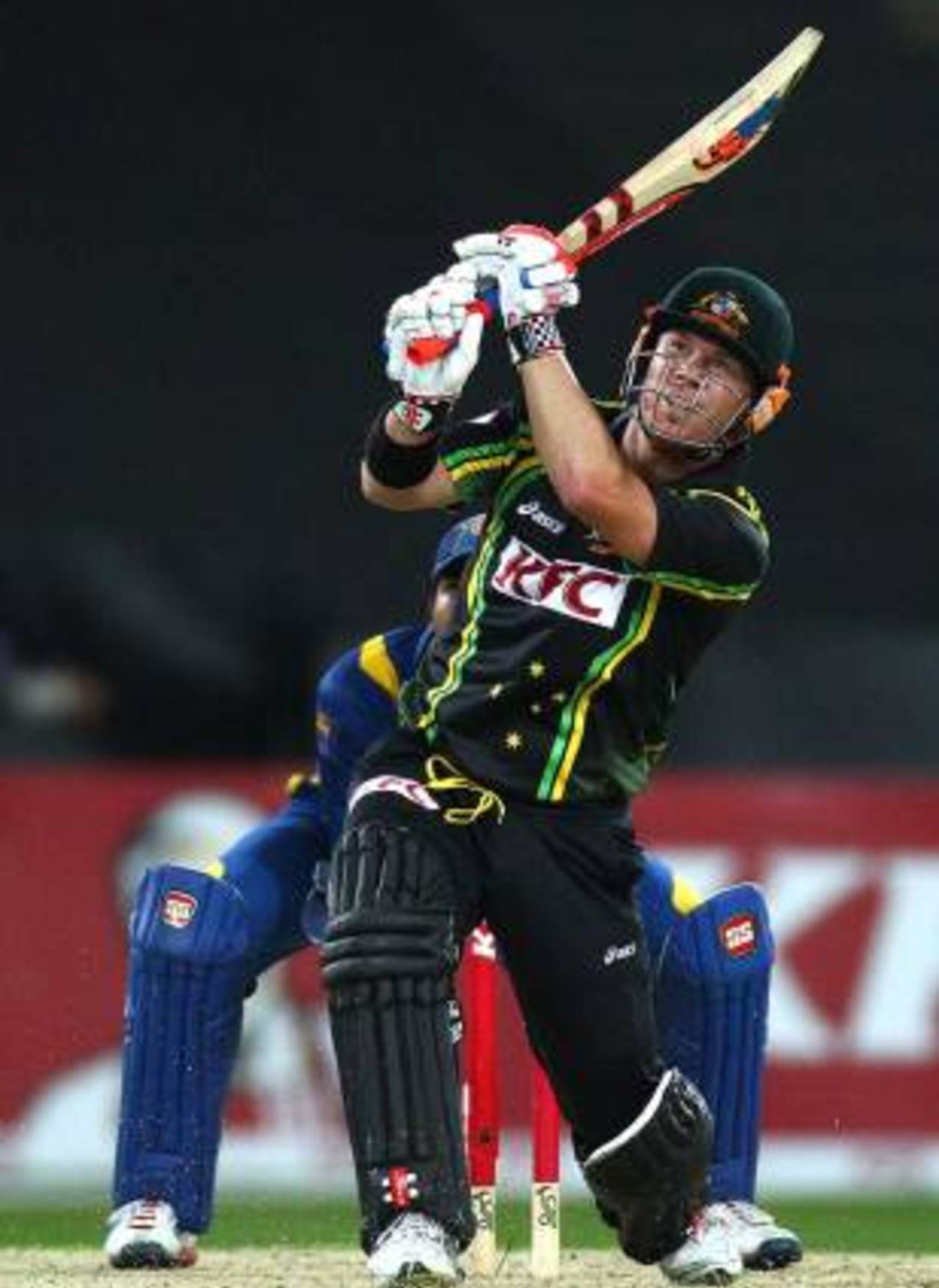Cricket Australia admits to rotation mistakes
Australia may seek to rest players more often on overseas tours rather than depriving home crowds of the national side's most high profile cricketers during the summer
Daniel Brettig
08-Feb-2013

Cricket Australia has conceded it could have handled David Warner's resting from the ODI side better • Associated Press
Australia may seek to rest players more often on overseas tours rather than depriving home crowds of the national side's most high profile cricketers during the summer. Momentum is growing for the concept of using foreign assignments to give Australia's most heavily employed cricketers a break rather than home limited-overs games during January.
James Sutherland, Cricket Australia's chief executive, has conceded it may be fairer for the Australian public to rest the likes of Michael Clarke and David Warner from ODIs in England and India later this year following Test series in those countries, rather than those at home. ESPNcricinfo understands the players' union also favours the idea.
The team performance manager Pat Howard has also conceded two significant missteps in the management of the national team during the ODI portion of this season.
Howard agreed it was "fair" to suggest the decision to rest Warner at the same time the captain Michael Clarke was sidelined by his recovery from a hamstring problem was ill-advised, and could have waited until Clarke had returned to fitness for the third game in Brisbane. There was also an admission that Usman Khawaja and Steven Smith were shabbily treated in being given only one match each at the start of the series than being promptly dropped back to their states.
These calls were among the most contentious in a summer when the national selectors have attempted to broaden the squad at their disposal, taking an approach uncompromising in its focus to ensure the team its at its freshest and most focused for major Test match assignments in India and England.
Warner's absence early in the series meant the ODI team was without a single name likely to attract spectators to the gate, and also left the side with a decidedly developmental look. The vagaries of player management are likely to result in a tweaking of the player payment MOU this year, as the players' union has argued the performance incentives factored into the agreement last year cannot be fairly applied when the ODI and Twenty20 teams can be changed so drastically at the blunt end of the World Cup cycle.
Smith and Khawaja's use as short-term options is known to have irked players and coaches in both their respective states, who wondered at how young players could be able to show their wares without some semblance of continuity. Howard said that while those selections were part of the balance between affording opportunities and then bowing to a public expectation to reinforce the team once Warner, Clarke and Matthew Wade had taken time out.
"I would have to say we could have done that better, absolutely," Howard. "I actually feel that if we'd won in Adelaide there would have been a more consistent run. But there was a lot of [public] pressure there. So Steve Smith and Usman Khawaja, as the Indian Test team has shown, are well regarded. They're not the complete player by any means, but they're very highly regarded. Selection is not an easy job.
"I think the Aaron Finch [selection] is about trying to give him some continuity, a proper run at it. The selectors do want to give continuity to a couple of people to try and give them that. Continuity for a period is important while we've also seen players under pressure really give great performances. A little bit of competition, [Ed] Cowan gets a hundred [against South Africa] then Warner gets a hundred - that sort of competition has been seen to be good at times. But continuity is important too."
Warner's place as a key performer in all formats for Australia - plus a Twenty20 hired gun - has given him a most unrelenting schedule to cope with, and Howard noted that his run-scoring dried up considerably during last year's tour of the West Indies after a heavy home summer.
"When Warner went to the West Indies last year he was absolutely cooked," Howard said. "Didn't perform, didn't score runs. And if you look at the last 12 months ODIs have been his weakest format. Guys came in and performed, Finch came in, [Phillip] Hughes came in. Hughes was [Australia's] man of the series. Did Warner not playing cost us? The fan issue is fine, the performance issue I'd argue that's not right.
"Balancing fans versus balancing performance is a hard one. The guys who came in hungry, the Baileys, the Hugheses, have done well. David Warner, if we just keep letting him play all the time, every game, you've got to make some choice. If Warner was a Test-only batsman, or just Tests and ODIs and he had his time off and didn't go to Sri Lanka and didn't go to IPL, that's a different discussion isn't it?"
Daniel Brettig is an assistant editor at ESPNcricinfo. He tweets here